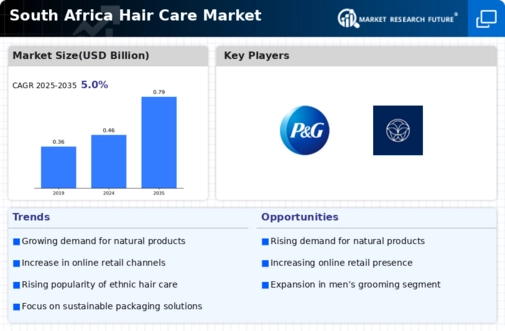Market Trends
Key Emerging Trends in the South Africa Hair Care Market
In the South Africa hair care market, market share positioning strategies are crucial for brands to differentiate themselves and gain a competitive edge in a dynamic and diverse industry landscape. One key strategy employed by hair care brands is product differentiation. With a wide array of hair types, textures, and concerns prevalent among South African consumers, brands often differentiate their products based on specific needs and preferences. This may include offering specialized formulations for different hair types, such as curly, straight, or afro-textured hair, or addressing specific concerns like dryness, damage, or scalp issues. By catering to the unique needs of diverse consumer segments, brands can establish themselves as experts in particular hair care categories and attract a loyal customer base.
Moreover, branding and marketing play a significant role in market share positioning in the South Africa hair care market. Brands invest in comprehensive marketing campaigns that leverage powerful messaging, compelling visuals, and strategic partnerships to build brand awareness and resonate with target audiences. Celebrity endorsements, influencer collaborations, and experiential marketing events are common tactics used to connect with consumers and drive brand engagement. By establishing strong brand identities and emotional connections with consumers, brands can differentiate themselves from competitors and drive preference and loyalty in a crowded market landscape.
Strategic pricing is another essential aspect of market share positioning strategies in the South Africa hair care market. With varying income levels and purchasing power among consumers, brands must carefully calibrate their pricing to strike a balance between affordability and perceived value. Value-for-money propositions, such as offering larger pack sizes at discounted prices or introducing economy ranges targeting budget-conscious consumers, can help brands gain market share in price-sensitive segments of the market. Conversely, premium brands may adopt premium pricing strategies, positioning their products as high-quality or luxury options targeted at affluent consumers willing to pay a premium for superior performance or perceived status.
Distribution channel optimization is critical for market share positioning in the South Africa hair care market. Brands must ensure their products are widely available and easily accessible through diverse distribution channels, including supermarkets, pharmacies, beauty supply stores, salons, and e-commerce platforms. Developing strong relationships with distributors, wholesalers, and retail partners can help brands expand their reach and improve product visibility, driving sales and market share growth. Additionally, direct-to-consumer sales channels, such as brand websites or subscription services, offer brands opportunities to engage directly with consumers, gather feedback, and tailor marketing efforts to specific customer preferences.
Product innovation and portfolio diversification are key drivers of market share positioning strategies in the South Africa hair care market. Brands continuously innovate and introduce new products or variants to address changing consumer preferences, emerging trends, and evolving market dynamics. This may include developing products with natural or organic ingredients, offering sulfate-free or silicone-free formulations, or introducing products with innovative features like heat protection, color preservation, or scalp care benefits. By staying ahead of trends and meeting unmet needs in the market, brands can differentiate themselves and capture market share from competitors.





Leave a Comment